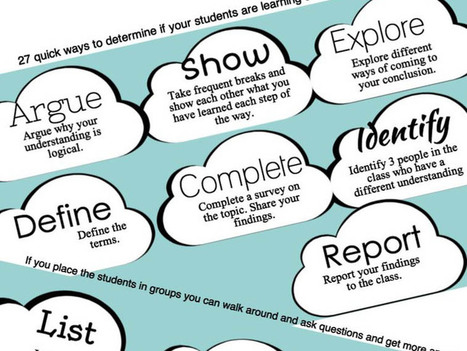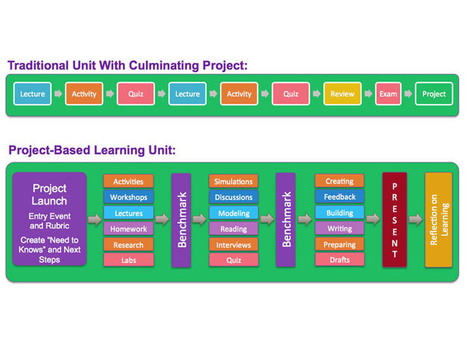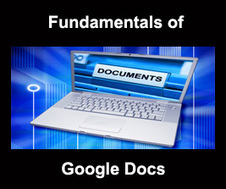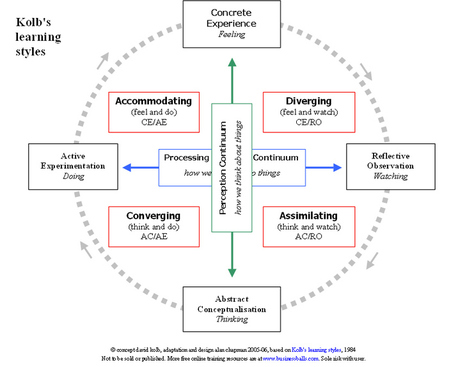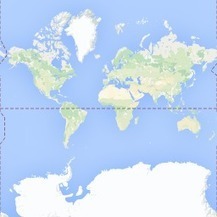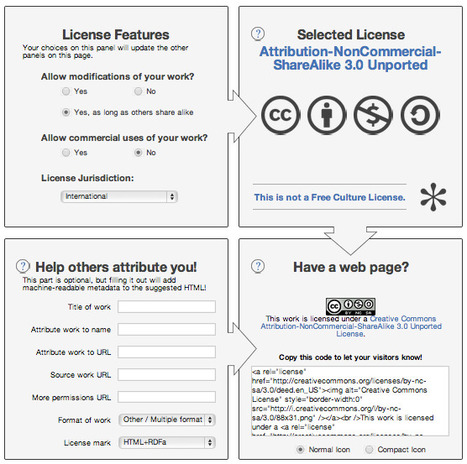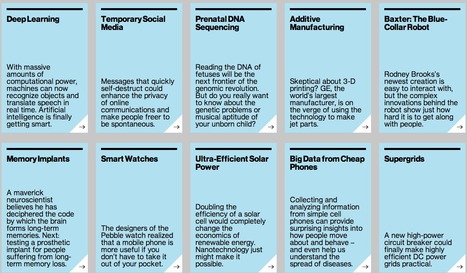There are nine simple steps on this visual guide to figuring out how to use scaffolding for deeper understanding of, well, everything.
Get Started for FREE
Sign up with Facebook Sign up with X
I don't have a Facebook or a X account

 Your new post is loading... Your new post is loading...
 Your new post is loading... Your new post is loading...

David Donat's curator insight,
November 4, 2013 2:11 PM
Quatre paraules per explicar l'essència de l'aprenentatge basat en projectes (PBL) a partir d'una bona infografia difosa des de Twiter (https://twitter.com/paulscurtis/status/390188798618771456/photo/1) en la que s'incideix en les diferències respecte d'alguns "projectes" que de vegades emprenem des dels centres educatius. 
Miles McGeehan's curator insight,
November 11, 2013 10:28 AM
I completely concur. Excellent graphic.

A/Prof Jon Willis's curator insight,
October 6, 2013 5:32 PM
Surprisingly useful search engine for university level student research 
Mary A. Axford's curator insight,
October 8, 2013 10:33 AM
Has anyone used this one? Looks like it could be a useful tool for library tutorials.

Kibet Koskei's curator insight,
September 13, 2013 3:04 AM
Without AMBITION one starts nothing. Without WORK one finishes nothing. 
M Dolores Solé Gómez's curator insight,
September 13, 2013 4:34 AM
Getting the basics of Google docs 
Steve Vaitl's curator insight,
September 13, 2013 11:08 AM
Great resource to get started using the free office suite available to everyone!!

Andrew Aker's curator insight,
September 5, 2013 5:55 AM
This site is great for multiplying your multiple intelligences!

Deb Nystrom, REVELN's curator insight,
November 7, 2013 11:20 AM
This has been cross posted in Innovation and in the Agile Learning curation stream, with over 250 comments. It has garnered quite the attention this past month! ~ Deb 
Willem Kuypers's curator insight,
April 2, 2015 6:07 AM
Intéressant de voir des initiatives l'un à côté de l'autre. Un bon résumé de quelques possibilités. |

21st Cent. Learners's curator insight,
November 3, 2013 5:40 AM
I'm torn by this. I'm sure that children come back with lots of information from the net, but how well is this translated into deeper understandings? Skillfully facilitated plenaries must be crucial. Maybe a juxtaposition of this with Hattie's findings on the key features of effective teaching would be interesting? I'd love to see SOLEs in action.

Roberto Ivan Ramirez's curator insight,
October 4, 2013 6:21 PM
Sorpresa!, me topo que no puedo acceder a esta liga, porque me mandan un mensaje que está desconectado el sitio debido al pagón del gobierno de EU.

Phil Turner's curator insight,
October 14, 2013 5:47 PM
mmm... obviously important topic, but no chance to review this yet as the weird machinations of the US government mean ERIC is currently unavailable while the world's biggest debtor convinces itself to advance itself some more credit.

Robin Good's curator insight,
September 5, 2013 1:40 PM
If you are a web publisher looking for an easy way to license some of your content under Creative Commons, here is a simple tool that can save you lots of time. Go to http://creativecommons.org/choose/ and just select your preferences for the type of license you want and this Creative Commons tool automatically generates a logo and also some code that you can copy and paste into your selected web pages. If you have an ebook or PDF I suggest you take a screenshot of the image and you include it with a link to the type of license you have selected. As a matter of fact this tool also provides the ability to generate a simple image that you can simply save by right-clicking on it. It remains your duty to link that image to the specific license type you have selected to make this truly effective. For clarifying first your doubts about which type of license to use, I suggest that you give look at these two excellent infographics which illustrate quite well the different options and license types you have available. a) http://visual.ly/what-creative-commons b) http://www.tagseoblog.com/what-means-creative-commons-infographic Finally, if you are interested in placing your work in the "public domain" without any type of license restriction you can do so here: http://creativecommons.org/publicdomain/ More info on CC license: http://creativecommons.org/licenses/ Considerations before licensing: http://wiki.creativecommons.org/Before_Licensing

wallemac's comment,
August 30, 2013 5:08 PM
great to see two solar verticles included in the top 10 - PV Solar and Supergrids
|






